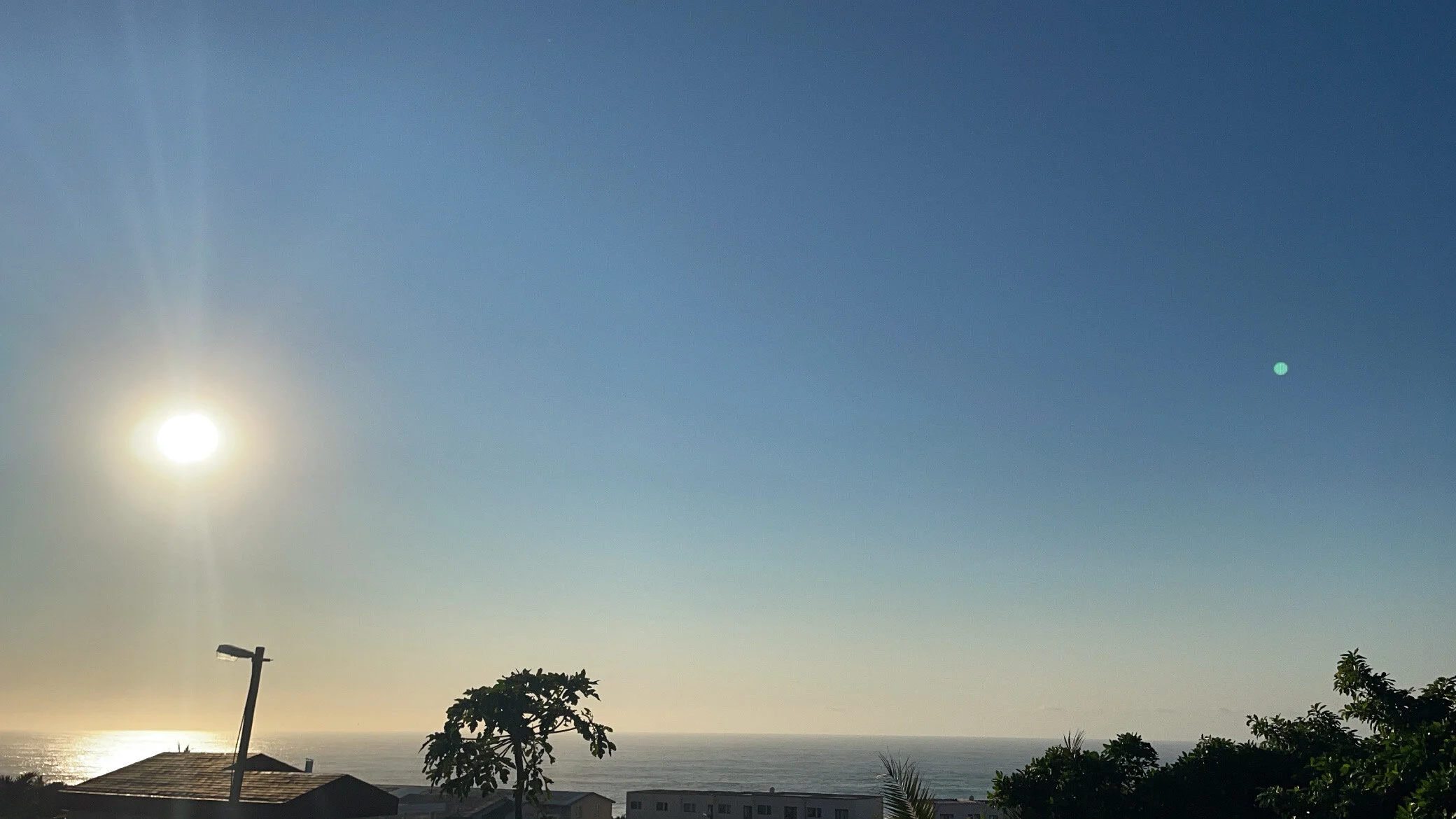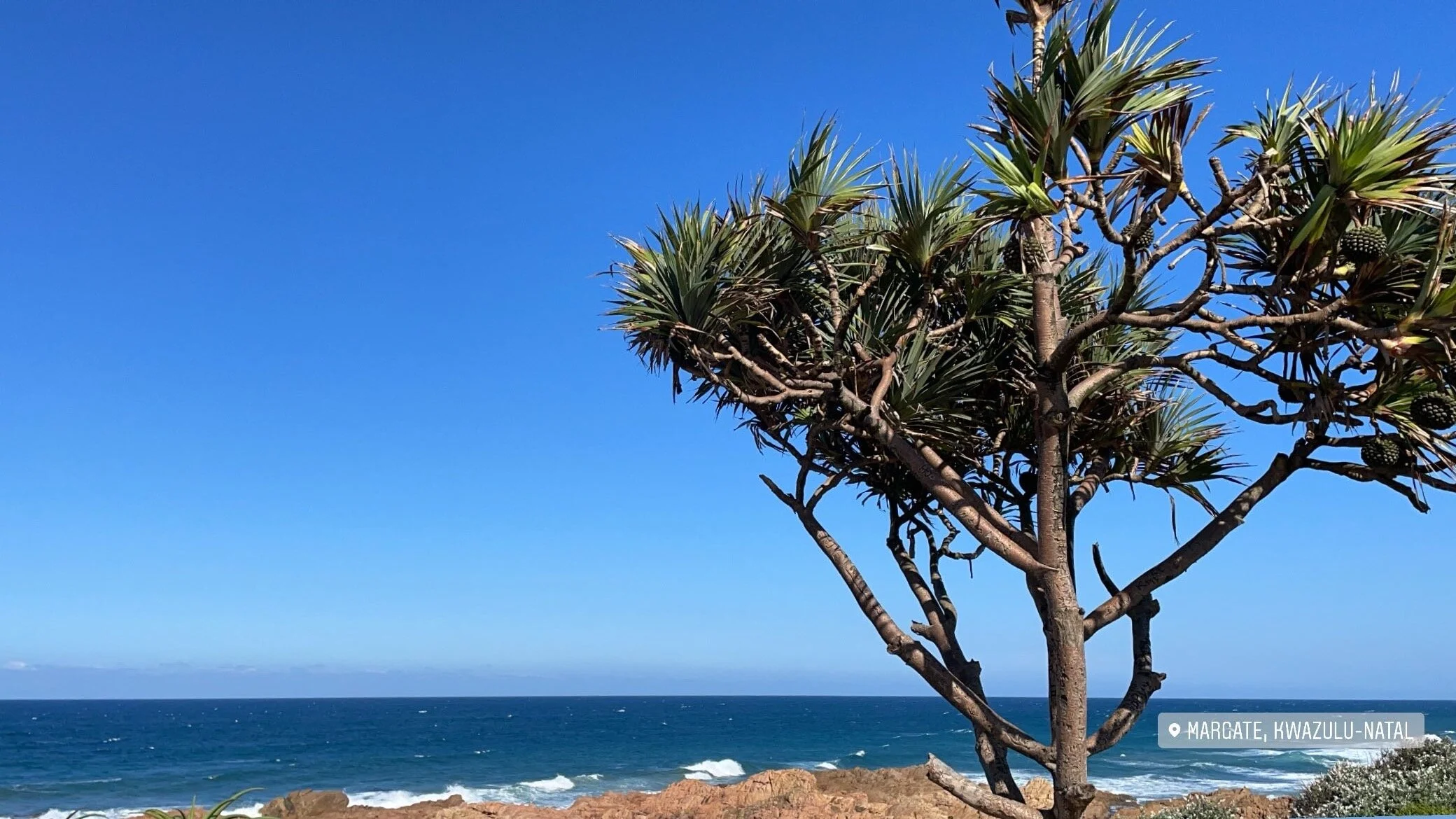Dr Salva Saman
I was born in a rural village of the Ugu district in South Africa, slap bang in the middle of the 20th Century in bondage to poverty and racism. My grandparents arrived in South Africa from India as indentured labourers on the sugar and tea estates. In India, they were in the lowest rung of the caste ladder – the untouchables. My mum started her young working life as a nanny to the children of a white farmer and never had the opportunity to acquire any formal education. My dad did have 3 years of formal education and began his work life as a caddy boy.
I lurched through life from failure to failure driven by a quest for relevance and liberation. On the bright side of this journey, however, I was able to take scenic routes that diverged from the traditional and mainstream. I achieved excellence in the science and art of medical practice as well as an enlightened understanding of the workings of oppression, exploitation, and racism. The delicacy of my failed relevance (although I have played a significant role in the unfinished liberation of the peoples of South Africa) lies in that I kept my distance from the looting brigade. I do not envy the political elite whose policies and governmental bureaucracy led to the impoverishment and dereliction of health care and education.
Even today, I find that at the workplace when “darkies” were harassed for the most trivial of reasons there lurked deep-seated systemic and institutional racism. The frustrating subtlety to these tactics was that the perpetrators would not give anything in writing, effectively hiding behind “my-word-against-theirs”. But what was clear in these interactions nonetheless was the dynamics of power running as an undercurrent along racial lines. Consequently, I have worked and will continue to work passionately to do anything in my power to bring balance to these dynamics. In essence, for people like me, perfection was the only way to survive.
At school I developed a love for English literature, which prompted not only a fluency in English but also an aversion to injustice along with a pursuit towards professionalism and integrity. It is perhaps in this that education became a cornerstone of what motivated me to enter the career I have held for these many years.
In 1969, when I arrived at medical school, the South African population consisted of 15.493 million indigenous black Africans, 3.864 million whites, 2.020 million so-called coloureds and 0.622 million Indians. In that year there were 3283 whites, 323 Asians, 136 coloureds, and 149 black Africans registered at medical schools. In my first years of studies, I was strongly influenced by my contemporary, Steve Biko, who became disillusioned by the reactionary white liberal practices of the National Union of South African Students (NUSAS). As a result, he turned his back on NUSAS and launched the Black Consciousness Movement and the South African Students Organization (SASO). I had a ringside seat to these events and of course – with Che Guevara being an idol – I was readied for the coming revolution. My life was further enriched by Neville Alexander and his uncomfortable rejection of the negotiated process leading to the 1994 democracy in South Africa.
Despite my struggles, I have had the good fortune of completing doctoral and post-doctoral research in basic medical sciences and my work has been published in respected journals. Furthermore, throughout my life I have encountered numerous inspiring and talented people. In the early 1980’s I was involved in the founding of an anti-apartheid health worker movement, which pioneered in South Africa the training of community workers in informal settlements. These foot soldiers have today come to the fore in the battle against Covid-19 and I myself have the privilege of being part of the national frontline facing off against this disease. I also served on the central committee of the Pan Africanist Congress as health secretary for over 8 years up until 1994. In this role I represented South Africa at WHO (World Health Organisation) meetings and so became interested in health systems development.
To add to my repertoire, I have been associated with 3 prestigious universities: the University of Cape Town where I completed 4 years of doctoral studies; the University of Edinburgh where I spent 18 months on post-doctoral research; and Kings College London where I spent 10 years training and mentoring young doctors.
After all these years of experience and these qualifications, I have come to envision digital adoption taking the struggle for liberation from poverty and institutional/systemic racism to levels we have not seen before. I seek to confer my wisdom, experience and knowledge to take the vision and mission of IESHER to new heights. In this endeavour, I am privileged to be part of an exciting and passionate group who are devoting their efforts into reshaping South Africa’s history beyond the negotiated settlement of 1994. My own efforts firstly lie in the sponsoring of the IESHER website. Secondly, I am also sponsoring and mentoring a clutch of talented students at various stages of postgraduate studies. They will serve as the beginnings of an army to strike back at my past failings. Late in my life, I bat for the long-term pursuit after the ideals of justice, the eradication of poverty, and the advancement of the frontiers of knowledge. If I have my way, this will be a pursuit that will continue for generations to come.
In returning to the Ugu district – after having achieved excellence in the face of adversity – I am convinced that I will be able to find and nurture the talent hidden in poor and rural communities. My story is one that does not have to be unique. From humble beginnings I was able to build something incredible and I believe that this is achievable for any person who has not had the privileges afforded to the white middle and upper classes of South Africa. There is an immense amount of talent yet to be unearthed in this beautiful, but somewhat broken country. My story is the story of individual and collective victory over adversity, the resilience and potential of all people who have been stripped of an immense amount of their humanity. And at this stage in my life it has become a personal mission to help others like me write remarkable stories of their own. Having defeated poverty and racism, I know how to lead the new generations out of it.

“There’s a lot that Dr Saman can give to society. Not too many good practitioners are also good thinkers, visionaries, and strategists – he is. We should do our bit to enable him digitally to make an impact on healthcare and healthcare administration, influence governmental policies, and enhance the quality of human lives at large.”
– Mintu Bora,
Co-Founder of IESHER

“In terms of those who have shaped my own thinking, I'd name three people who have been particularly influential. The first is Dr Selva Saman, my postgrad supervisor at the University of Cape Town Medical School. He taught the importance of critical and original thinking, that emotions and numbers should never mix – and that you can never read too many books. Thanks to him, I'll always look at a business plan with the same critical eye I'd pass over a scientific research paper.”
– Erica Crawford,
Co-Founder of Crawford Wines and owner of organic wine producer, Loveblock Vintners.

